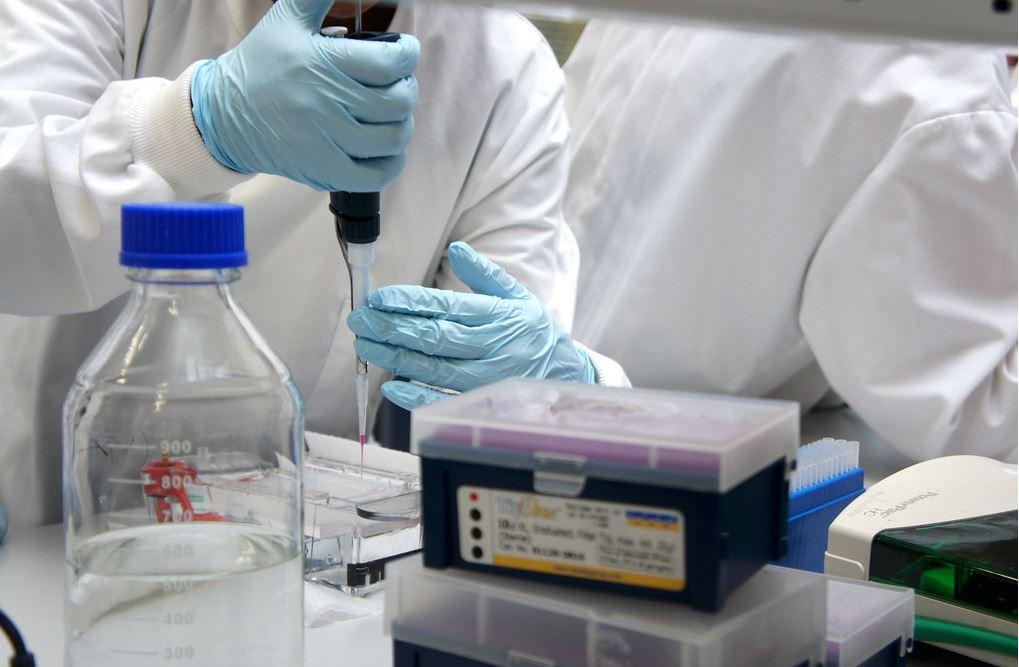Research highlighted in ASCO annual report on progress against cancer
Research led by Professors Peter Schmid and Thomas Powles from Barts Cancer Institute, Queen Mary University of London, has been selected by the American Society of Clinical Oncology (ASCO) for inclusion in the Clinical Cancer Advances 2021, the Society’s annual review of progress against cancer. The notable studies, which investigated the use of immunotherapy in the treatment of triple negative breast cancer and advanced bladder cancer, are featured as two of many remarkable milestones in clinical cancer research and care: ascopubs.org/journal/jco.
Improving survival in advanced bladder cancer
 One of the selected studies led by Professor Thomas Powles describes the findings from a phase III clinical trial (JAVELIN Bladder 100), which showed that immunotherapy avelumab significantly improved survival in patients with bladder cancer. This was the first time an immune therapy clinical trial showed a survival benefit for first-line therapy in metastatic bladder cancer.
One of the selected studies led by Professor Thomas Powles describes the findings from a phase III clinical trial (JAVELIN Bladder 100), which showed that immunotherapy avelumab significantly improved survival in patients with bladder cancer. This was the first time an immune therapy clinical trial showed a survival benefit for first-line therapy in metastatic bladder cancer.
The trial randomised maintenance avelumab against best supportive care. Treatment with avelumab started within 10 weeks of completion of chemotherapy, and results showed a significant overall survival benefit for avelumab, with a 31% reduction in the risk of death. Efficacy was seen across different subgroups of patients and no new safety signals were observed.
A total of 700 patients from over 200 sites around the world were included - one group received regular checking (standard care) on its own, and the other received avelumab in addition to standard care. The results of the trial were published in The New England Journal of Medicine.
Speaking of the findings, Professor Powles said:
“We saw a meaningful reduction in the risk of death and a significant overall survival benefit with avelumab. This approach has become a standard treatment in Europe. It’s an important advance in this disease.”
This treatment regimen has now been approved by many regulatory bodies including the Food and Drug Administration and the European Medicines Agency, and is recommended as a standard of care in key guidelines.
Reducing risk of recurrence in aggressive breast cancer
The second study selected for inclusion in the annual report, led by Professor Peter Schmid, details the findings of the phase III KEYNOTE-522 trial. In the trial, patients with early triple negative breast cancer were given the immunotherapy drug pembrolizumab in addition to standard chemotherapy to shrink their tumour prior to surgery. Nearly 65 per cent of the women showed no sign of the cancer after the treatment with pembrolizumab, compared to just over 51 per cent of patients who received chemotherapy alone.
Previous studies have shown that triple negative breast cancer patients whose tumour has completely gone following chemotherapy have a more than 90 per cent likelihood of being cured. Women with residual cancer at the time of surgery have a 40-50 per cent probability of the disease returning, even though the cancer is completely removed in surgery. Recurrence often occurs within three years, with a very poor prognosis.
Professor Schmid said:
“We saw a nearly 14 per cent increase in the number of women with no cancer in the immunotherapy treatment group, which is a massive step forward. It’s long been established that women with no residual cancer after preoperative treatment stand a much better chance of remaining cancer-free; so being able to substantially improve these numbers is truly exciting. This would be the first targeted treatment open to all women with early triple negative breast cancer.”
The international trial recruited 1,174 patients across 21 countries with stage II and stage III triple negative breast cancer - where the disease had not yet spread beyond the breast and lymph nodes. The findings were published last year in The New England Journal of Medicine.
Related articles:
Immunotherapy improves survival in patients with advanced bladder cancer
Immune therapy reduces risk of recurrence in aggressive breast cancer
Category: General News

No comments yet